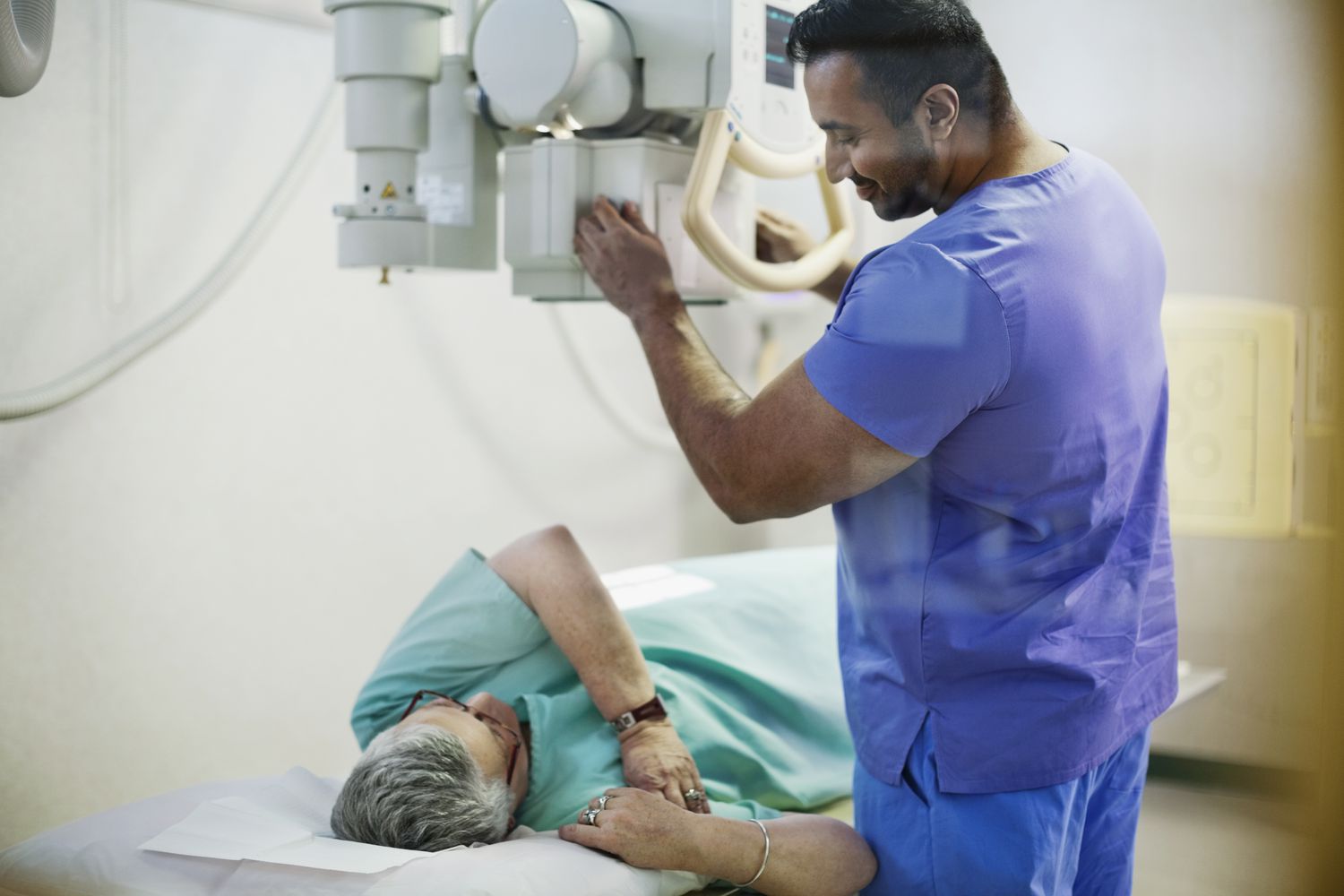Fluoroscopy is a medical imaging technique. It uses X-rays to capture real-time images of the internal structures of the body. It is a valuable tool in guiding treatment for various medical conditions. Fluoroscopy test can diagnose a wide variety of conditions. Including problems with your heart, bones, joints, and digestive system.
Here are 7 Reasons why You may Need a Fluoroscopy Test:
1. Evaluating Digestive System Disorders:
Fluoroscopy is frequently used to observe conditions affecting the digestive system. It can identify problems such as:
- Hiatal hernias, and intestinal blockages
- Gastroesophageal reflux disease (GERD)
- Swallowing disorders
- Ulcers
The test can show the movement of the digestive organs. Which provides valuable insights for accurate diagnosis and treatment planning.
2. Assessing Joint and Bone Conditions:
Fluoroscopy tests can examine joints and bones. It enables experts to check conditions like:
- Fractures
- Dislocations
- Joint degeneration
- Arthritis
The fluoroscopy test determines the extent of the injury or disease. Which guides the treatment decisions, and monitoring progress over time.
3. Guiding Pain Management Procedures:
Fluoroscopy can also guide certain pain management procedures, such as:
- Epidural steroid injections
- Nerve blocks
- Joint injections
It ensures accurate needle placement. To precisely deliver medication to the affected area. This enhances the effectiveness of pain relief treatments and minimizes potential complications.
4. Diagnosing Heart and Blood Vessel Conditions:
It can analyze cardiac catheterization procedures. Which diagnose and treat various heart and blood vessel conditions. It enables experts to imagine the heart chambers, and blood flow in real time. This helps in identifying blockages and assessing heart function.
5. Assessing Lung and Respiratory Disorders:
The test can diagnose and check lung and respiratory conditions. It can be used to check the health of your lungs. Also, detect abnormalities in lung ventilation and blood flow. Which guide certain procedures such as bronchoscopy or lung biopsy.
6. Detecting Urinary System Issues:
Fluoroscopy is also employed to check urinary system disorders. It can detect conditions such as:
- Kidney stones,
- Urinary tract obstructions,
- Bladder dysfunction,
- Vesicoureteral reflux.
The urinary tract is imagined through contrast dye. Which helps identify abnormalities and guide further diagnostic or therapeutic interventions.
7. Spine and Interventional Procedures:
Fluoroscopy is used during spine procedures and other interventional treatments. It provides real-time guidance for procedures like:
- Spinal injections,
- Vertebroplasty,
- Discography.
The healthcare provider visualizes the targeted area. Which ensures accurate needle placement. And improves the safety and effectiveness of these interventions.
Fluoroscopy is a versatile imaging technique. It has many applications across medical specialties.
Whether it’s evaluating:
- Digestive disorders
- Assessing joint conditions
- Guiding pain management procedures
- Diagnosing heart or lung issues
- Detecting urinary system problems
- Assisting in spine interventions
Fluoroscopy plays a crucial role in accurate diagnosis and treatment planning. If you require a fluoroscopy test, contact Huntington Radiology Center in California. Our experienced team will provide exceptional care to meet your healthcare needs.
Contact Huntington Radiology Center in California to schedule your fluoroscopy test. Experience the benefits of state-of-the-art imaging technology for accurate diagnosis and personalized care.



